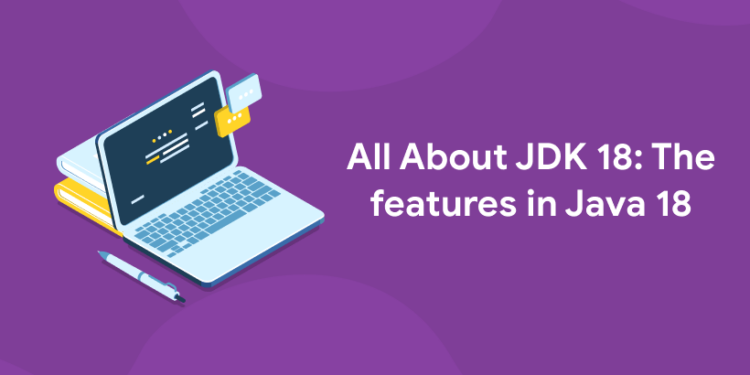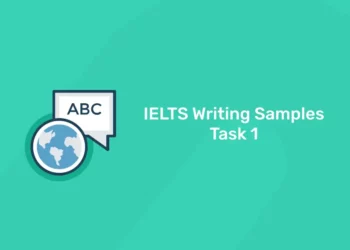Table of Contents
As of February 24, the Java Development Kit (JDK) 18 has progressed to the final release candidate stage. The new version of standard Java will contain nine new features when it is released in its final form on March 22, 2022. Every six months, a new version of standard Java is produced; the last version, JDK 17, was released in September.
All About JDK 18
The following features are listed as officially targeting JDK 18 on the OpenJDK website.
- a service provider interface
- a simple web server
- a third incubation of the vector API
- code snippets
- a reimplementation of core reflection
- a UTF-8 charset
- the second incubator of a foreign function and memory API
- the second preview of pattern matching for switch statements
- deprecation of finalization
Learn to code from industry experts! Enroll here!
The Features in Java 18
1: What is the default value of a boolean in Java?
JDKs continue to be released with new and exciting features. Programmers are constantly curious to discover what new features the language will provide. Java 18 is the most recent version of the JDK family, including nine new features. Let’s look at the new features in Java 18 and when they will be released.
- In JDK 16, Vector API was launched as an incubating API, then in JDK 17, it was advanced to the second phase of incubation integrating. It was first developed to provide an API for expressing vector calculations that compile at runtime and outperform scalar computations. The ARM Scalar Vector Extension (SVE) platform has been introduced to the Vector API in Java 18. JDK 18 will provide parallelization, allowing users to do more tasks in a single CPU cycle. It will also boost the speed of vector operations on hardware that supports masking. It will provide benefits such as a simple and clear API, dependable real-time compilation and performance on x64 and AArch64 platforms, and gentle degradation.
- UTF-8 is a variable-wide character encoding for electronic communication, as you are probably aware. It is the internet’s default charset. However, it will now be the default charset for regular Java APIs as well. The APIs that rely on UTF-8 will now function similarly across operating systems, locales, and settings as a result of this modification. The major goal of this upgrade is to improve the predictability and portability of Java applications. Because these applications use the UTF-8 charset, they can now operate on a variety of operating systems. Except for console I/P, it will standardise UTF-8 throughout all mainstream Java APIs.
Learn to code from industry experts! Enroll here!
- The use of Code Snippets in Java API documentation will make it easier to provide example source code in the API description. Modern stylings, such as syntax highlighting and automated name-to-declaration linking, will be available in JDK 18. It will enable IDE support for snippet creation and editing. Java 18 will make it easier to validate source code fragments. The pieces will be accessible through API. This will make it easier for the author to accomplish accuracy since Javadoc’s additional support will make it easier.
- Pattern Matching for Switch was initially released as a preview feature in JDK 17. This is the second time this feature has been previewed. It features a few small tweaks based on the user’s input and experience with the first preview. It was initially established to add pattern matching for switch expressions and statements to the Java language, as well as enhancements to the pattern language. The initial preview has been improved, with dominance checking requiring constant case labels to occur before a guarded pattern of the same type. It will make the text more readable.
- Simple Web Server, which is included with Java 18, is a command-line tool for starting a simple web server that simply serves static files. There will be no CGI or servlet-like capabilities accessible. It’ll come in handy for prototyping, ad-hoc coding, and messaging, especially in educational settings. JDK 18 will provide an out-of-the-box static HTTP file server that is simple to set up and use. It will make JDK more user-friendly. It will provide a default command-line implementation as well as a modest API for programmatic development and customization.
- Internet-Address Resolution SPI in Java 18In Java 18, a service-provider interface (SPI) for hostname and address resolution will be defined. So, java.net InetAddress can utilize resolvers. It won’t make API utilise the system’s default resolver. The InetAddress API includes several methods for lookup operations, such as getALLbyName for forwarding lookup and mapping a hostname to a collection of IP addresses, and getByName for mapping a hostname to simply the first address.
- Deprecate Finalization, which is still enabled by default but can now be disabled. It will make early testing easier. Furthermore, it will be turned off by default in future versions. Later on, it will be permanently removed. It will aid developers in comprehending the risks of finalization. This update will prepare developers for the loss of finalization in future Java versions. It will also include basic tools to aid in the detection of dependency on finalization.
- As an incubating API, the Foreign Function and Memory API were initially presented in JDK 17. It was the API that brought the two APIs together: The Foreign Memory Access API and the Foreign Linker API. Support for additional carriers, a more generic dereference API, and an easier API to acquire downcall method handles have all been added to the prior API, which has been re-incubated and introduced to JDK 18. It is a simple API to manage temporal dependencies between resource scope. It will be a Java array copying API that will copy arrays from and to memory regions.
- Reimplement Core Reflection with Method Handles comprises reimplementation of java.lang.reflect.Method, Constructor, and Field on top of java.lang.invoke method handles. It will make the method handle underly mechanism for reflection. It will decrease the upkeep and expansion costs of both java.lang.reflect and java.long.invoke APIs.
Learn to code from industry experts! Enroll here!
On December 9th, 2021, Java 18 began the first phase of the ramp down. It is presently in the second stage of the ramp down, which began on January 20, 2022. The feature set is now fixed, and there is very little chance of it changing in the future. On February 10th, 2022, the Initial Release Version will be accessible. Following that, on February 24, 2022, the Final Release Version will be accessible. By March 22, 2022, programmers will be able to use all of Java 18’s functionalities. Download the Entri App to Learn more about coding courses available like Java and Python.











